Featured
Crushed hopes: Maldives lockdown exit plans draw ire for ‘failing to address emotional toll’

Residents of Maldives capital Male raised concerns Thursday over whether they could cope with a series of unprecedented restrictive measures any longer after the government unveiled a roadmap to slowly ease one of the world’s most densely populated cities out of lockdown.
The restrictions in Male region which stem from the coronavirus pandemic are being eased in phases, with the first phase starting Thursday and lasting at least two weeks. Despite some relief, most restrictions remain in place during the first phase.
Shortly after the government unveiled its reopening plans, people took to social media to criticise the plans as “too little, too late”.
The barrage of criticism centres around how the reopening plans fail to take into account the heavy emotional and psychological toll of the extended lockdown measures.
“In most countries, one of the first step of easing the lockdown was allowing people to go out for exercise. This is something we can do, with social distancing measures,” Ahmed Marzooq, Secretary General of the Maldives Olympic Committee, said on Twitter.
His comments are being echoed by dozens of social media users who say they were hoping for more.
Parents and guardians are also adding their voice to the debate. They say not allowing children below the age of 15 to go out until the second phase of reopening will lead to both short and long term mental health issues.
“This is unacceptable. We should be allowed to take our kids out for at least a few hours every week,” Fathimath Yusra, mother of an eight-year-old boy and a three-year-old girl, said.
What can you do in the first phase?
The lockdown and stay-at-home orders in the capital region were initially ordered on April 15 for two weeks. It has since been extended four times.
The lockdown bans all public activity and travel in Male and its suburbs of Hulhumale and Villimale. Any movement in and out Male and its suburbs, as well as the neighbouring industrial islands of Thilafushi and Gulhifalhu are also banned.
The restrictions in Male region will only be eased in phases, with the first phase starting Thursday and lasting at least two weeks.
Since authorities placed capital Male and its suburbs on lockdown on April 15, police had been issuing permits for essential needs. The permit allows one person from each household to go out for one hour every three days.
From Thursday, a maximum of three people from each household will be allowed to go out for up to three hours twice a week but they will still have to get a police permit beforehand.
Businesses that can open from Thursday include:
- Retail shops
- Bakery
- Supermarkets
- Bookshops
- Pharmacies
- Hardware shops
- Shops specialising in childcare items
Speciality shops such as those selling cosmetics and textiles can also take orders online and provide delivery service.
Banks will be allowed to provide essential services for three days a week in the first two weeks. In the second phase, banks can increase their service days to five a week.
Restaurants and cafes will only be allowed to provide takeaway and delivery service in the first two weeks. Dine-in will not be allowed until a later phase.
Government offices will also remain closed, but essential staff can go to office under special permits. Private offices can open for essential needs under a special permission from the economic ministry.
Colleges and universities can also resume online classes.
Parks, beaches, recreation centres and gyms, as well as schools and mosques in capital Male and its suburbs will remain shut for the first two weeks. No outdoor exercise is allowed.
Inter-island transport will also remain banned.
‘New normal’
Despite the public criticism, health officials say the lockdown has had a major effect on slowing the spread of the novel coronavirus.
“The reproduction number has been cut to 1.4 from 3.8,” health minister Abdulla Ameen said, during a press conference Wednesday evening.
Officials say the lockdown measures can only be relaxed in phases.
“There are certain things we have to consider before we take every decision. We can’t take any risks,” Dr Nazla Rafeeq, a medical officer with the Health Protection Agency (HPA), told reporters Wednesday.
Health officials say the gradual loosening of restrictions can only be implemented in the context of a “new normal” phase to avoid a second wave of infections.
“The lockdown measures might have to be reimposed if a surge is detected. Further easing will also depend on how well people comply with the measures,” Dr Ali Latheef from HPA said.

Authorities managed to mitigate the spread of the virus and the Covid-19 respiratory disease it causes amongst the Maldives’ citizens and residents early on by closing the Indian Ocean tourist paradise’s borders, earning praise from the World Health Organisation.
But the disease later spread rapidly within the large migrant worker community in capital Male. Authorities have ramped up relocating workers from the cramped up dormitories in one of the world’s most densely populated cities to temporary accommodation units.
An estimated 63,000 foreign nationals work in the Maldives illegally out of a migrant worker population close to 145,000.
Foreign workers in the Maldives, predominantly Bangladeshi and Indian men, are subjected to practices indicative of forced labour, including fraudulent recruitment, confiscation of identity and travel documents, withholding or non-payment of wages, and debt bondage.
As most migrant workers live in extremely poor conditions, a widespread outbreak amongst them could lead to large virus clusters, overwhelming the country’s already under staffed and strained healthcare system and making it harder for authorities to contain the spread of the virus.
On March 8, Maldives reported its first cases of the novel coronavirus, as two hotel employees tested positive for Covid-19 at a luxury resort in the archipelago.
Eighteen more cases — all foreigners working or staying resorts and liveaboard vessels except five Maldivians who had returned from abroad — were later identified.
A six-case cluster of locals, detected in capital Male on April 15, confirmed community transmission of the coronavirus. Several more clusters have since been identified, bringing the total number of confirmed case in the Maldives to 1,457.
Five deaths have been reported and 242 have made full recoveries. Five remain in intensive care.
The Maldives announced a state of public health emergency on March 12, the first such declaration under a recent public health protection law.
The public health emergency declaration allowed the government to introduce a series of unprecedented restrictive and social distancing measures, including stay-at-home orders in capital Male and its suburbs, a ban on inter-island transport and public gatherings across the country, and a nationwide closing of government offices, schools, colleges and universities.
Non-essential services and public places in the capital such as gyms, cinemas and parks were also shut.
Restaurants and cafes in the capital were asked to stop dine-in service and switch to takeaway and delivery.
A nationwide shutdown of all guesthouses, city hotels and spa facilities located on inhabited islands is also in effect.
Awards
Constance Halaveli and Constance Moofushi earn top scores in 2026 Booking.com awards
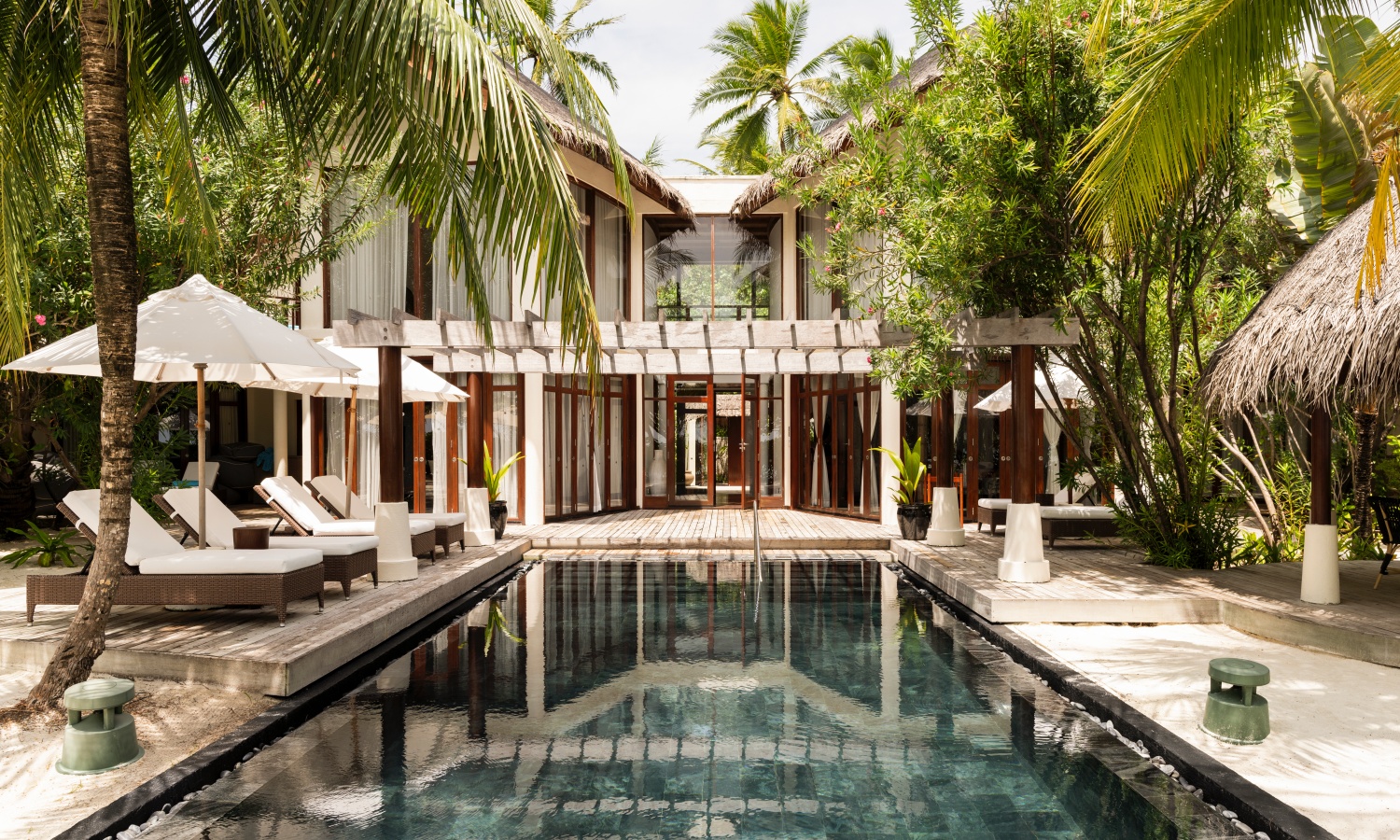
Constance Hospitality has been recognised in the 2026 Traveller Review Awards by Booking.com, with its Maldivian resorts achieving some of the highest scores within the group’s portfolio.
In the Maldives, Constance Halaveli Maldives received an outstanding score of 9.8 out of 10, while Constance Moofushi Maldives achieved 9.7. The ratings, based on verified guest reviews, reflect consistently high levels of guest satisfaction and service delivery.
Constance Halaveli Maldives, known for its spacious overwater and beachfront villas, personalised service and refined dining concepts, continues to perform strongly among travellers. Constance Moofushi Maldives, positioned as a barefoot chic resort with an all-inclusive concept, also maintains a high guest approval rating, supported by its diving experiences and relaxed island atmosphere.
While the wider Constance portfolio across the Indian Ocean was recognised, the Maldives properties stand out as the group’s highest-rated resorts in the 2026 awards cycle.
Commenting on the recognition, Jean-Jacques Vallet, Chief Executive Officer of Constance Hospitality, stated that the awards reflect the professionalism and commitment of the teams on the ground. He added that guest feedback remains central to maintaining service standards and delivering consistent experiences across the group’s destinations.
The recognition reinforces the position of Constance Halaveli Maldives and Constance Moofushi Maldives as leading performers within the Maldives’ competitive luxury hospitality sector.
Featured
Year of the Horse celebrations across Sun Siyam’s Luxury, Privé and Lifestyle resorts
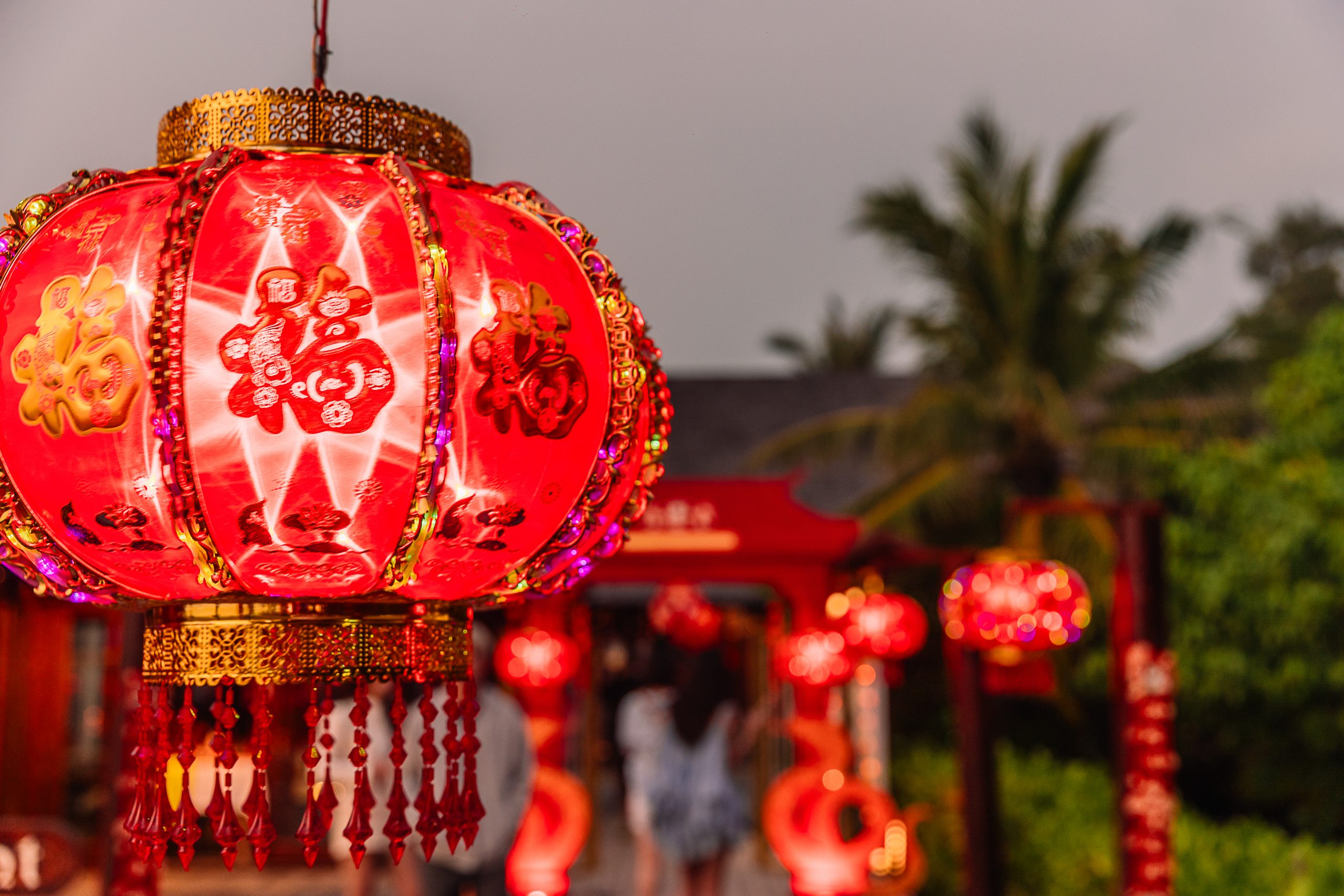
Sun Siyam Resorts is marking the Lunar New Year across its Luxury, Privé and Lifestyle collections with a coordinated programme of cultural experiences, festive dining, music and family-focused activities from 15 to 20 February 2026. Celebrating the Year of the Horse, each resort’s programme reflects its individual character while embracing the spirit of renewal and togetherness associated with the season.
Siyam World – Lifestyle Collection
At Siyam World, Lunar New Year celebrations combine cultural heritage with contemporary island energy. A highlight of the programme is a live showcase featuring Chinese-inspired DJ sets paired with the traditional guzheng, creating a fusion of electronic rhythms and classical melody. Performances by the Chaozhou Shantou lion dance troupe add further cultural depth, with guests invited to observe, participate and learn traditional movements.
Sun Siyam Olhuveli – Lifestyle Collection
Sun Siyam Olhuveli is presenting a relaxed Lunar New Year programme shaped by traditional symbolism and island living. Throughout the week, the resort will host family-friendly cultural activities, traditional performances and live music. Red-themed décor and festive elements will set the tone, while dragon displays and cultural showcases bring movement to the island’s central spaces. The celebrations peak on 16 and 17 February with performances by DJ Slim Belghith, whose international sound will accompany evening festivities.
Sun Siyam Iru Veli – Privé Collection
At Sun Siyam Iru Veli, the Year of the Horse will be marked through a programme that combines cultural traditions with family-oriented experiences. The Kids Club will host themed activities including red envelope crafting, lantern making, zodiac-inspired art and traditional games. The Fire Horse Pool Party at Chemistry will bring families together with music and refreshments. Dining highlights include hot pot lunches and dinners, along with a dedicated Chinese section titled “Flavours of Fortune” at the Aqua Orange buffet. Guests may also enjoy seasonal spa treatments at Ocean Spa designed to promote balance and renewal.
Sun Siyam Vilu Reef – Privé Collection
Sun Siyam Vilu Reef will conclude its celebrations with a Grand Spring Gala Dinner featuring international cuisine alongside Chinese specialities. The evening includes a traditional lion dance performance, filling the island with movement and symbolic gestures intended to welcome prosperity and good fortune.
Sun Siyam Iru Fushi – Luxury Collection
At Sun Siyam Iru Fushi, Lunar New Year celebrations will blend Chinese traditions with Maldivian island experiences. Dining features include beachfront seafood platters, Blue Lobster barbecues and traditional hot pot dinners, complemented by chocolate, cheese and champagne tastings.
Younger guests may take part in dragon dance workshops and lantern painting sessions, while signature resort experiences such as Sunset Jet Car rides, Cinema by Moonlight on a private boat and floating breakfasts add further variety. Evening turndown moments incorporate local Maldivian touches, reflecting the resort’s approach to cultural exchange. With 15 dining venues, family-oriented villas and dedicated adults-only spaces, the resort’s programme is designed to accommodate a broad range of guests.
Commenting on the celebrations, Ahmed Naufal, Group Director of Business Development, noted that China remains an important market for Sun Siyam. He stated that the Lunar New Year celebrations provide an opportunity to honour Chinese traditions while delivering experiences consistent with the group’s standards of hospitality.
Across its Maldivian portfolio, Sun Siyam Resorts presents Lunar New Year as a season of cultural appreciation, shared celebration and renewal by the sea.
Action
LUX Tennis joins St. Regis Maldives Vommuli to expand active lifestyle programme
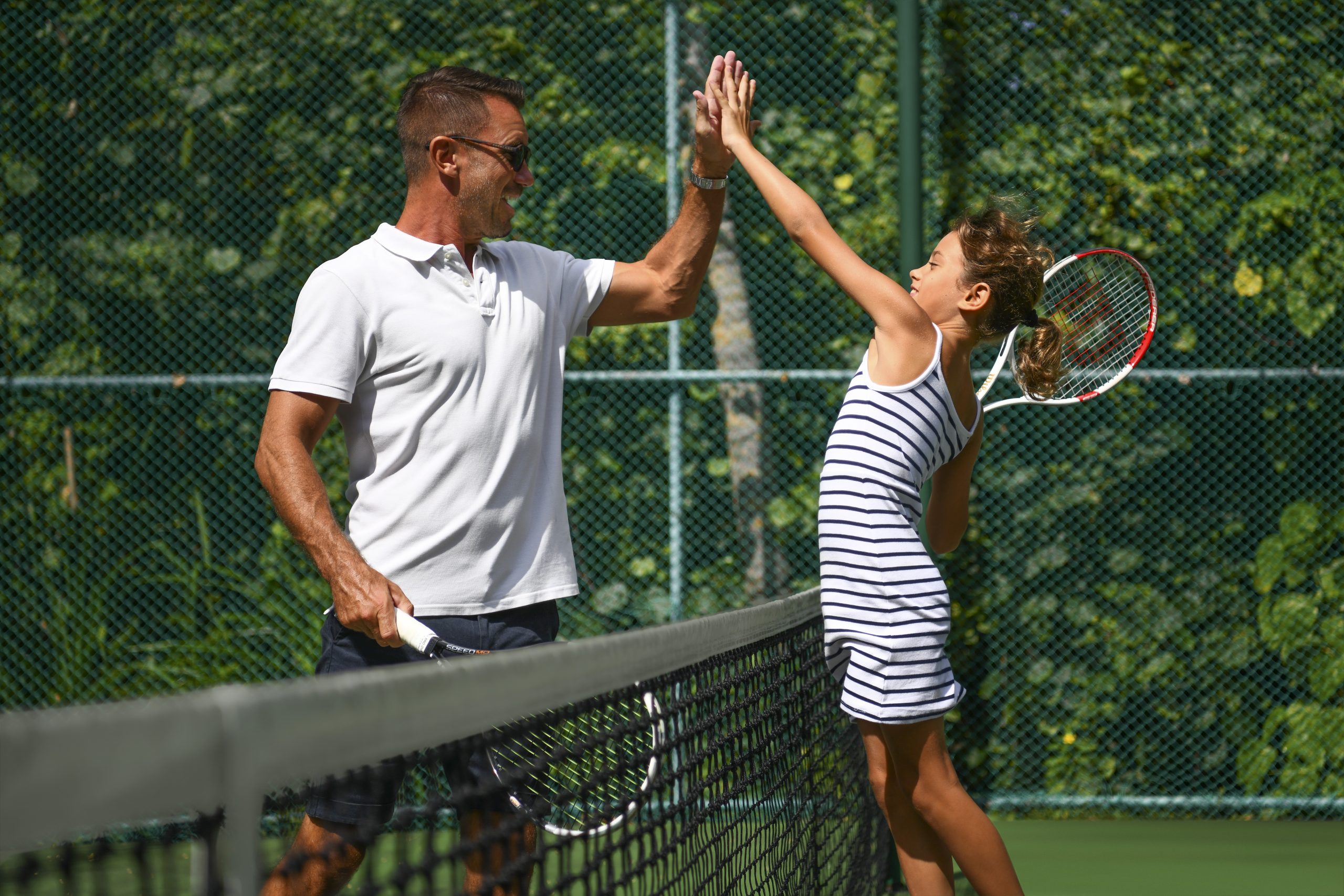
St. Regis Maldives Vommuli Resort has announced a partnership with LUX Tennis, strengthening the resort’s established tennis offering and introducing plans for a new padel court. The collaboration expands the resort’s active lifestyle programme, with a particular focus on families and multi-generational travel.
The St. Regis brand draws on the legacy of the Astor family, founders of the original St. Regis New York, whose Gilded Age lifestyle celebrated refined leisure and sporting pursuits. Tennis, in particular, became a symbol of elegance within the Astor social circle, reflecting a culture shaped by hospitality, recreation and sophistication. This heritage continues across the St. Regis portfolio today, where classic sports remain an integral part of the brand’s identity.
Set within the resort’s private island environment, the enhanced LUX Tennis programme is designed to elevate on-island tennis experiences for guests of all ages and skill levels. The programme features expert-led coaching, bespoke clinics and visiting residencies by internationally recognised professionals, offering guests opportunities to train, play and engage with elite talent in an accessible and inspiring setting.
Confirmed visiting professionals include Angelique Kerber, three-time Grand Slam champion and former world number one, who will visit from 29 to 31 March 2026, and Feliciano López, former Spanish champion with a career-high singles ranking of world number 12, scheduled from 16 to 17 May 2026.
The expanded tennis programme is designed to integrate seamlessly with island life, offering everything from relaxed family matches and junior-friendly coaching to more focused sessions for experienced players. Activities are structured to complement time spent at the beach, spa experiences and family dining.
The St. Regis Maldives Vommuli Resort features 77 beachfront and overwater villas, each with a private pool, alongside facilities such as the John Jacob Astor Estate, the largest overwater three-bedroom villa in the Maldives. Guests also have access to the award-winning Iridium Spa, six dining venues and a private yacht available for charter, reinforcing the resort’s positioning as a destination for both leisure and active pursuits.
-
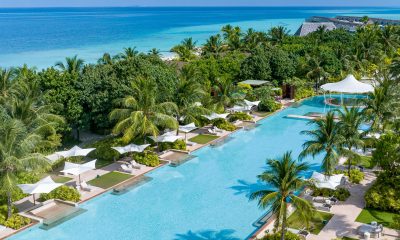
 Culture1 week ago
Culture1 week agoKuda Villingili presents family-focused Eid al-Fitr experience in Maldives
-
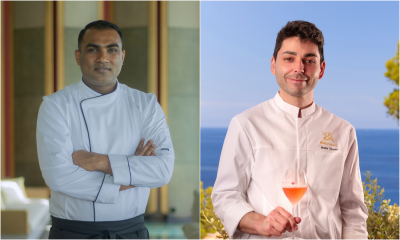
 Cooking1 week ago
Cooking1 week agoMichelin-starred Chef Jaume collaborates with One&Only Reethi Rah’s TAPASAKE for four-hands dinner
-
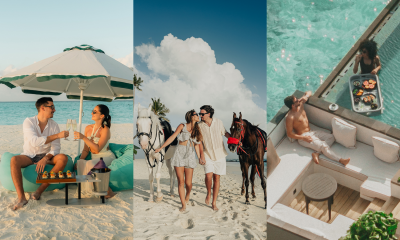
 Featured1 week ago
Featured1 week agoSun Siyam Resorts marks Valentine’s season with multi-resort celebrations
-
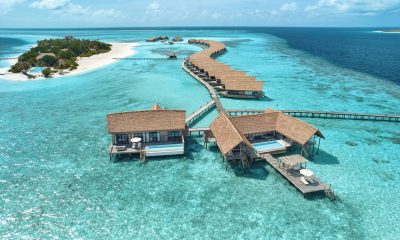
 Love1 week ago
Love1 week agoCOMO Cocoa Island, COMO Maalifushi unveil Lunar New Year, Valentine’s Day celebrations
-
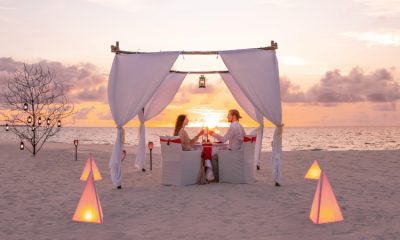
 Featured1 week ago
Featured1 week agoCoco Bodu Hithi and Coco Palm Dhuni Kolhu curate distinct Valentine’s escapes
-
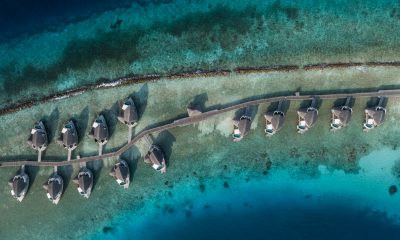
 News7 days ago
News7 days agoJW Marriott Maldives Resort & Spa invites families to celebrate Eid Al-Fitr in island luxury
-
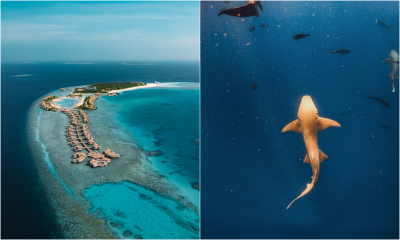
 Action6 days ago
Action6 days agoInterContinental Maldives Maamunagau Resort launches ‘Swim with Nurse Sharks’ experience
-
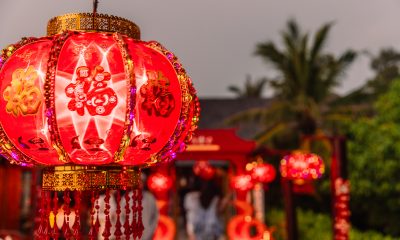
 Featured5 days ago
Featured5 days agoYear of the Horse celebrations across Sun Siyam’s Luxury, Privé and Lifestyle resorts








